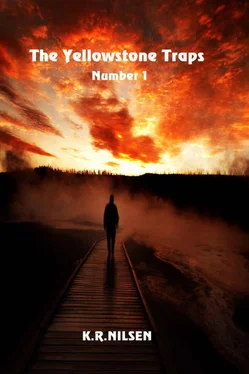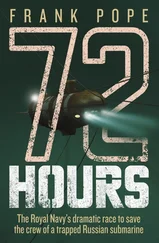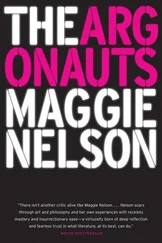Harland turned away from the golden kernels and shuffled across the room. He leaned back against one of the fermentation tanks, facial muscles drooping, head bobbing low.
“You know something, Mr. Whittemore?”
“What’s that?”
“I have no love for you, no love for your kind.”
Abel cocked his head.
“I could have shot you down when you came at my door some weeks ago. If it came down to keeping the grain for my neighbors, I’d’a shot you as soon as look at you.”
Abel was straightforward in his response. “I came to your door, farmer, to tell you what we were planning to do here. You needed to know that there was no need to confront anybody. Not at all.”
“I was afraid we’d be fighting on two fronts,” Harland admitted, “fighting you people and the Guard.”
“If you had given me the chance to speak my mind, the Guard would be leaving here tomorrow with a fraction of what they thought they’d haul out. The elevators would still be intact, and no one would have been hurt.”
Harland waxed pensive, sensing that Abel wanted something from him. The farmer knew he was in no position, a prisoner in the dark tank room, to cut a deal with the three men around him.
“What is it you want, Whittemore? You’ve got the corn here. What else do you want from me?”
“What do I want? You mean, ‘what do we want?’ That’s what you mean.”
“People need this grain, mister,” Harland hissed.
“That’s right, Harland,” Abel shot back forcefully. “Any and everyone remaining in this valley needs the grain, needs it for months, even years to come.”
“Without it, people are going to die,” Harland ripped.
“They are going to die with it, too, if other things aren’t done.”
“Other things? What other things?”
“You’ll see for yourself, Harland, tonight.”
“See what?”
“Never mind now. We’ve got a long trip ahead of us.”
“What do you mean, we ?” The Swede’s voice warbled, betraying rising apprehension.
“You, Harland, and the three of us.”
“I’m not going anywhere!” Harland protested.
“Oh, yes, you are, about a dozen miles, farmer.”
Sleep deprivation accentuated pain flaring from a score of points throughout Harland’s body. His mouth and esophagus burned; cramps ran the length of his intestines. His skin folded like thick dry leather about him and crusty fissures inhabited the skin at every joint. The throbbing from the blow to the head was not the worst of it.
Hours sitting in freezing darkness, straddling the centerline of an open canoe, were torture. Fore and aft, younger men pulled hard on paddles through the night, churning up swirling foam on the ebony surface of Big Stone Lake. Harland imagined himself a prisoner of war, a hostage being spirited away by night from loved ones by terrorists bent on breaking him down mentally and physically.
The climb uphill from the lake on a rough lane carved into the bluffs had brought the farmer to the brink of delirium. He couldn’t recall when he had slept enough to feel rested or eaten anything substantial. Sound sleep had been impossible through the nights the National Guard was in town. He calculated he must have been awake for a greater part of sixty hours.
Spirited along by the men who had piloted the canoe, Harland crested the bluffs overlooking Big Stone Lake just as the first scouts of gray dawn light infiltrated the frigid air. Roofline angles loomed out of the night. A few were brightly lit. Harland could make little sense of all he was seeing. Mental acuity had eroded, lost to the trauma of the last hours.
Hustling, always moving, the men who flanked Harland brought him to the community center kitchen. Electric lights stabbed into his eyes, fully dilated by hours of travel in darkness. A chair was produced and Harland lowered into it. He put his head down on a table, giving in to nervous exhaustion.
“Mr. Sven, are you hungry?” a woman’s voice asked. “We have some food for you. You need to eat.”
The new arrival raised his head off the table. A female in her mid-sixties placed several plates before him, food on each. One platter offered a square of corn bread and a small slab of dark, dried jerky. The other plate, larger than the first, carried a similar square of corn bread, but also a heap of salad greens, baked beans, a small wedge of cheese, and what appeared to be a small fillet of some sort of white fish. A thin melon slice filled out the dish.
Abel arrived with a glass of water and a glass of milk. He placed the water with the plate holding the lean fixings and the glass of milk with the plate brimming with many different foods.
Harland glared at the two platters and their accompanying beverages. After a lengthy pause, Harland spoke up. “Are these, ah, is this food for me?”
“Yes, Harland,” said Abel. “Pick one, either one. You may have one, but not both meals.”
Harland sighed. “I would like….” He stopped in mid-sentence, sensing something otherworldly about having to make a choice from two very different selections. Paranoia froze him in place.
Penny, the woman who had placed the food before Harland, recognized instantly the farmer was afraid and unable to make a choice. Her instincts told her that Harland was either terrified of making a wrong choice, or found the situation unfolding around him so absurd as to be unable to respond.
“Mr. Sven, I made you two meals,” Penny said in motherly tones. You may have either one. You need to eat. I would be pleased if you would accept one of my dishes.”
The farmer rocked back in his seat slowly, his face pulsing with rash red. Without uttering a syllable, and pleading to Penny with his eyes, Harland pointed to the plate brimming with the many different foods.
“Yes, Mr. Sven, you may have that one.” She handed him a place setting and a napkin.
As Harland took the knife, fork and spoon, a stranger crossed the room and took a seat across the table from the farmer and to one side of Abel.
“Harland, this man is a physician,” said the town’s founder. “This is Arthur Ruchelshouse, he has been our caregiver for as long as we’ve been on the bluffs.”
Harland put his utensils down and dropped his hands to his side. He glared at the doctor.
“Hello, Mr. Sven. I’m Art.”
Harland remained tight-lipped.
“I’m going to ask you just a few things while you eat your meal.” The physician touched the cheeks on his own face. “Mr. Sven, you have what we call a butterfly lesion on your face. Have you had it long?”
The farmer nodded imperceptibly.
“That’s a clue, a symptom of something. It tells me you are quite sick. Could I ask you to stick out your tongue for me?”
Slowly, Harland did what the doctor asked.
“Mr. Harland, your tongue is bright red, unnaturally so. Does the skin inside your mouth next to your molar teeth hurt you?”
“Yes,” the man said in a whisper.
“How about your throat, your windpipe and esophagus?”
“They’ve bothered me for a month.”
“Do you have rashes on your elbows and crusty spots? Do you have indigestion often, nausea, loose bowels sometimes?
“How would you know?” Harland rumbled defensively.
“I would imagine you are in real pain much of the time.”
Harland exhaled a storm of carbon dioxide. “You’ve got that right.”
Doctor Ruchelshouse folded his hands and leaned over the table toward the farmer. “Mr. Sven, you are suffering from a disease called pellagra. It was a common ailment in the Deep South during the Depression. It’s caused by niacin deficiency. That deficiency is due to eating a diet like you see on this plate.”
Читать дальше










